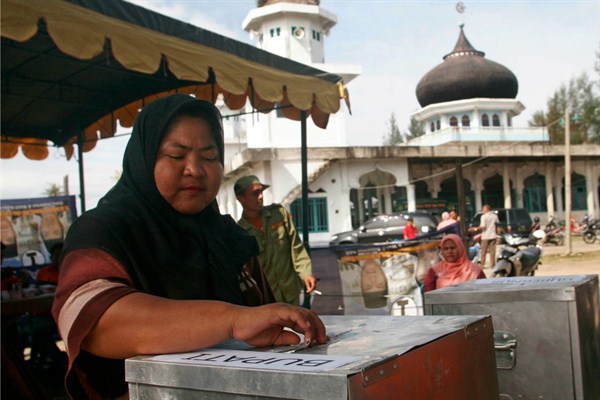Hailed as the model for resolving long-running separatist insurgencies in Southeast Asia, the 2005 agreement that ended a nearly 30-year civil war in Indonesia’s Aceh province, on the northwestern tip of Sumatra, is showing its cracks. Under the peace deal, Aceh was granted more political autonomy as the separatist rebels of the Free Aceh Movement, known in Indonesian as the Gerakan Aceh Merdeka, or GAM, laid down their arms. Since then, the province has held several democratic elections, while its economy has grown at an annual clip of 5 percent over the past decade.
But while the deal has provided a roadmap for ending similar conflicts in the region— from the southern Philippines to western Myanmar and southern Thailand—Aceh’s future suddenly looks less certain. Last summer, the GAM’s former military leader, Muzakir Manaf, called for a referendum on the province’s independence, warning that “Indonesia is no longer clear on the question of justice and democracy.” Manaf now heads the province’s largest political party, the Aceh Party, but not all of its members are united on the referendum. Kamaruddin Abubakar, the party’s secretary general and Manaf’s former deputy in the GAM, who is popularly known as Abu Razak, estimated public support for a referendum at about 50 percent.
Ultimately, a referendum is unlikely to be held, but Manaf’s call for independence shines a spotlight on the slow pace of reconciliation in Aceh. Since 2016, the Aceh Truth and Reconciliation Commission has been working to document abuses committed during the civil war, yet it has no judicial powers and has not received explicit backing or support from the central government in Jakarta. With the commission due to issue its report by 2021, recently reelected President Joko Widodo, who is widely known as Jokowi, must take its recommendations seriously to secure the legacy of Aceh’s peace process.

